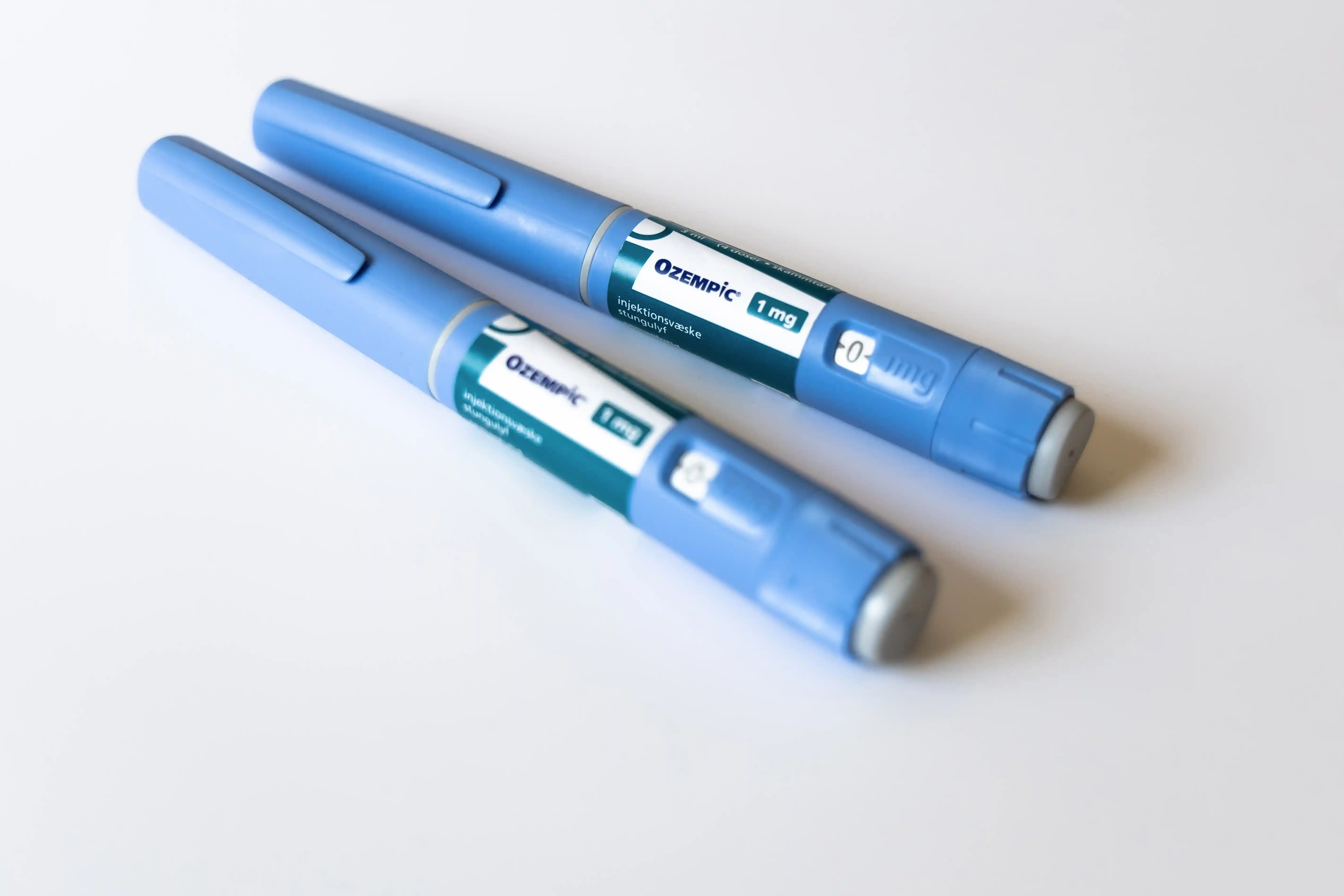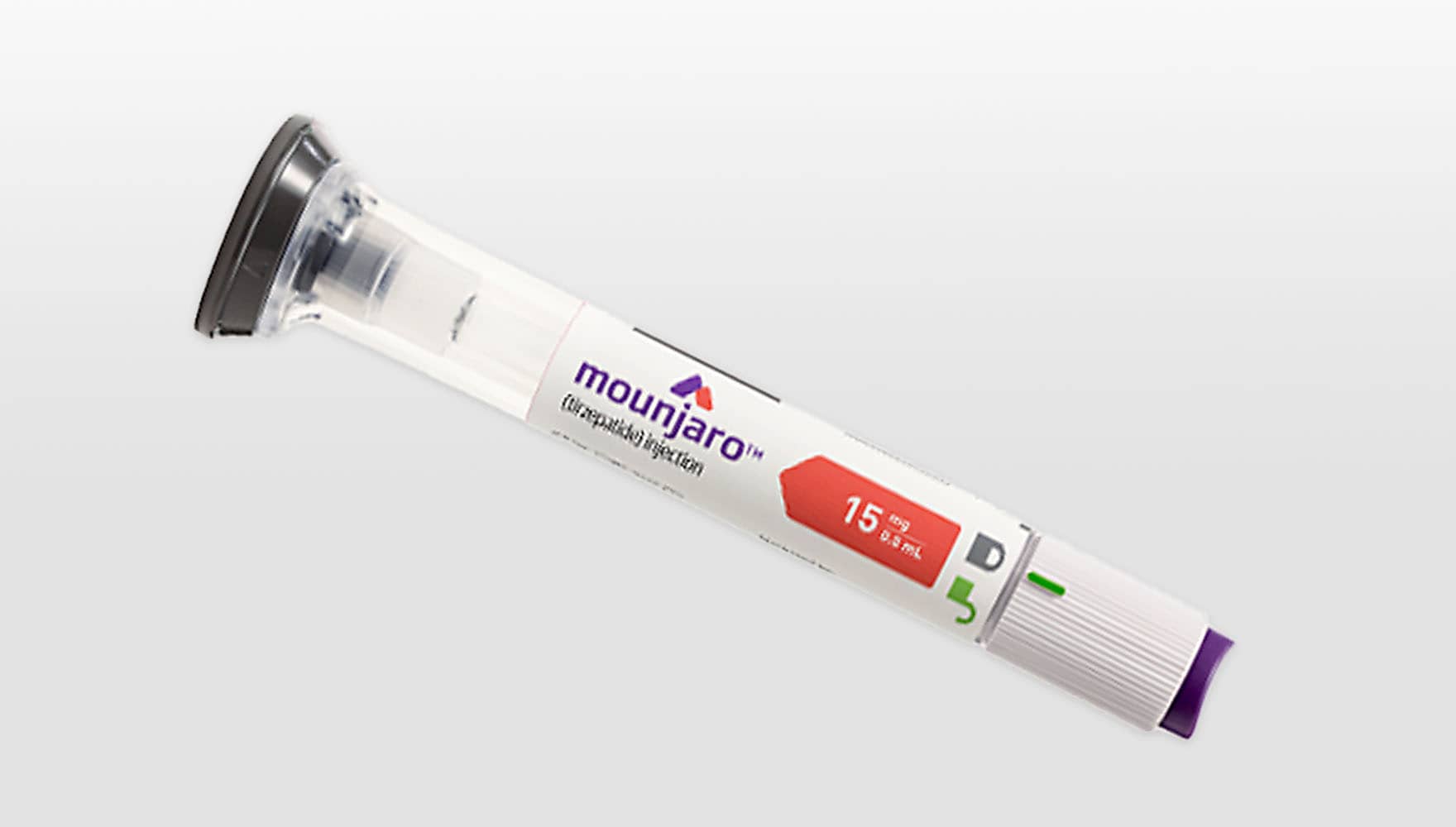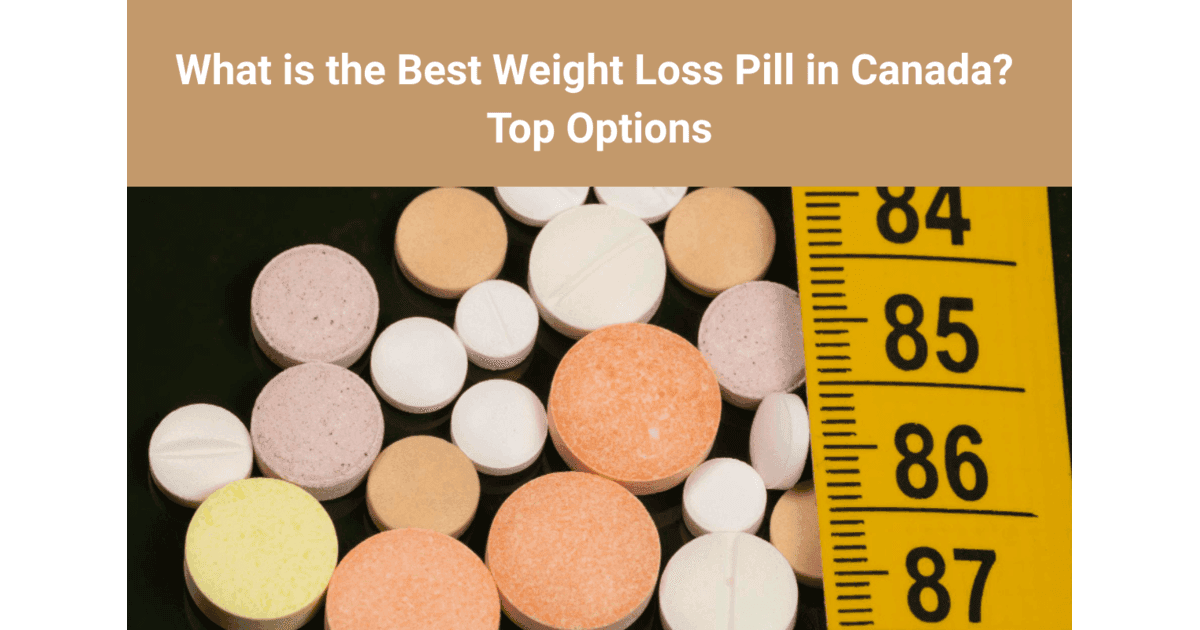If you’re exploring weight loss medications, you’ve likely heard of Wegovy and Ozempic, two treatments from Novo Nordisk that have gained attention across Canada.
Both medications offer innovative solutions while sharing the same active ingredient, semaglutide. However, their applications, benefits, and side effects differ significantly. From weight loss to blood sugar regulation, understanding what separates these two drugs is crucial.
You must be wondering: Which option is safer, more effective, and right for me? Let's break down the different uses, dosage schedule, and other key differences, so you can make a well-informed decision about your health journey.
What Are Wegovy and Ozempic?

The rise of GLP-1 medications for weight loss has many people asking: Wegovy or Ozempic? Both treatments come from Novo Nordisk and are part of a class of drugs known as GLP-1 receptor agonists, designed to help regulate appetite and blood sugar.
Wegovy is a prescription medication primarily used for chronic weight management in adults with obesity or overweight conditions. It contains semaglutide, which mimics the GLP-1 hormone, helping regulate appetite and calorie intake, promoting significant weight loss when combined with diet and exercise.
Unlike Wegovy, Ozempic is a prescription medication that was primarily developed for managing type 2 diabetes. However, its active ingredient, semaglutide, mimics GLP-1 (glucagon-like peptide-1) to enhance insulin secretion, reduce appetite, and lower blood sugar levels. It has also gained attention for potential weight loss benefits.
Before exploring their effectiveness, side effects, or dosing, let’s break down the core Ozempic vs Wegovy difference: what goes into these medications.
Ingredients in Wegovy vs Ozempic: What’s Inside These Medications?
Both Wegovy and Ozempic contain the active ingredient semaglutide, a glucagon-like peptide-1 (GLP-1) receptor agonist. This component plays a critical role in regulating blood sugar levels and promoting weight management.
However, variations exist in the formulation, with Wegovy specifically designed for chronic weight management and containing higher dosages tailored for weight loss results. The inactive ingredients may also differ slightly, affecting factors like stability and solubility.
Living with type 2 diabetes and ready for better blood sugar control plus weight management support? Ozempic is a proven solution trusted by doctors. Buy Ozempic now with DooÜ and enjoy free delivery!
Wegovy vs Ozempic: What’s Approved in Canada?
Both Wegovy and Ozempic have received health authority approvals for specific uses in Canada, catering to the growing need for effective weight management solutions. While both medications contain the active ingredient semaglutide and work as receptor agonists, their approved indications differ. Here's how:
Approvals and Indications of Wegovy:
- Approved by the FDA and Health Canada for chronic weight management in adults with obesity or overweight conditions.
- Indicated primarily for chronic weight management in adults with a body mass index (BMI) of 30 or higher, or those with a BMI of 27 or higher coupled with at least one weight-related health condition, such as high blood pressure or type 2 diabetes.
- Intended to support chronic weight management in combination with lifestyle changes (diet and exercise).
Approvals and Indications of Ozempic:
- Approved by the FDA and Health Canada for managing blood sugar levels in adults with type 2 diabetes.
- Serves primarily as a treatment for effectively aiding in blood sugar control and lowering the risk of major cardiovascular events (e.g., heart attack, stroke).
- Off-label use for weight loss in individuals with high BMI is common, but not officially approved for this purpose in Canada.
Ozempic vs Wegovy for Weight Loss

Clinical trials offer the clearest insight into how Ozempic and Wegovy perform when it comes to weight loss. Both medications have been rigorously studied in large-scale trials, helping us understand their effectiveness in reducing body weight over time. Here’s what the research shows.
Clinical Trial Results: Ozempic
While it is not officially approved for weight loss, many doctors prescribe it “off-label” due to its significant contribution to weight management. Step 2 trials of the Semaglutide Treatment Effect in People with Obesity (STEP) trial series show that participants with type 2 diabetes experienced an average loss of around 10% of their initial body mass index (BMI).
While most subjects responded to Ozempic well, some reported common side effects. Overall, Ozempic stands out as a powerful option for individuals aiming for weight loss and enhanced metabolic health.
Clinical Trial Results: Wegovy
The Step trials assessing Wegovy have demonstrated significant results in chronic weight management. Participants without type 2 diabetes experienced an average weight reduction of over 15% from their initial body weight within 68 weeks.
The clinical studies highlighted improvements not only in body mass index (BMI) but also in related health metrics, such as blood sugar levels and cardiovascular risk factors. These findings underscore Wegovy's role as a promising weight loss drug.
Experience the proven benefits of Wegovy? Get personalized care, your prescription, and free delivery, all without leaving home. Buy Wegovy now with DooÜ and start your weight loss journey today!
Administration and Dosage of Wegovy vs Ozempic for Weight Loss
When considering Wegovy or Ozempic for weight loss, understanding how these medications are dosed and administered is key to achieving safe, effective results. Both medications are given as once-weekly injections, but the dosing schedules differ based on treatment goals and the specific formulation. Let's understand how:
Ozempic Dosage and Dosing Schedule
Ozempic is started at a low dose to help the body adjust and reduce the risk of side effects. The typical dosing schedule is:
- Starting Dose of Ozempic: 0.25 mg once weekly for the first 4 weeks.
- Next Step: Increase to a higher dose of 0.5 mg once weekly after 4 weeks.
- Further Adjustment: The dose may be increased to 1 mg or up to a maximum dose of 2 mg once weekly, based on individual response and blood sugar control.
Wegovy Dosage and Dosing Schedule
Wegovy treatment begins with a gradual dose increase to help improve tolerance and reduce side effects. The typical schedule is:
- Starting Dose: 0.25 mg once weekly for the first 4 weeks.Step-Up Dose: 0.5 mg once weekly for the next 4 weeks.
- Further Increases: Escalating to a maintenance dose of up to 2.4 mg weekly (usually reached by week 16).
Ozempic vs Wegovy Dosage Chart
Clinical trials offer the clearest insight into how Ozempic and Wegovy perform when it comes to weight loss. Both medications have been rigorously studied in large-scale trials, helping us understand their effectiveness in reducing body weight over time. Here’s what the research shows.
| Week | Ozempic Dose (weekly) | Wegovy Dose (weekly) |
| 1-4 | 0.25 mg | 0.25 mg |
| 5-8 | 0.5 mg | 0.5 mg |
| 9-12 | 0.5 mg or 1 mg (if needed) | 1 mg |
| 13-16 | 1 mg or up to 2 mg (max) | 1.7 mg |
| 17+ | Up to 2 mg (maximum dosage) | 2.4 mg (max) |
Weighing the Risks: Side Effects of Ozempic and Wegovy
As with any medication, these drugs may cause side effects that vary depending on individual response, different doses, and overall health. Let's uncover them.
Common Side Effects of Ozempic
Ozempic side effects may appear early in treatment, particularly as you adjust to the mg dose or change your drug administration schedule. Common and reported side effects include:
- Nausea and vomiting
- Diarrhoea
- Stomach pain or abdominal discomfort
- Constipation
- Ozempic face (facial volume loss or gaunt appearance, particularly with significant weight loss)
- Low blood sugar (especially when combined with other diabetes medications)
- Fatigue
- Headache
- Hair loss (less common)
- Dizziness
- Injection site reactions (redness, swelling, or itching at the injection site, such as the upper arm or thigh)
Rare but serious risks can include:
- Pancreatitis
- Gallbladder problems
- Kidney failure
- Possible increased risk of thyroid tumours
- Cardiovascular concerns, though trials showed no significant increase in cardiovascular death
Now, let's walk you through the common side effects of Wegovy.
Common Side Effects of Wegovy
Like Ozempic, Wegovy side effects often emerge as the body adjusts to higher doses during titration. Reported Wegovy side effects include:
- Nausea
- Vomiting
- Diarrhoea
- Constipation
- Stomach pain
- Low blood sugar (rare on its own, more likely if combined with other treatments)
- Hair loss (reported in some cases)
- Headache
- Dizziness
- Fatigue
- Injection site reactions
Serious but rare risks include:
- Pancreatitis
- Gallbladder disease
- Kidney injury
- Risk of thyroid C-cell tumours (as seen in animal studies)
- Potential cardiovascular disease risks are still being studied, but evidence points to reduced cardiovascular death in certain high-risk groups
While Wegovy and Ozempic share many similar side effects, Wegovy’s higher doses for weight loss may contribute to a greater likelihood of gastrointestinal symptoms during dose escalation. On the other hand, Ozempic may be associated with more noticeable facial volume loss (“Ozempic face”) in some individuals.
Since side effects can vary greatly from person to person, always reach out to your healthcare provider if you experience anything unusual or concerning.
Wegovy vs Ozempic: Which Is Right for You?

Choosing between Wegovy and Ozempic comes down to your personal health goals, starting weight, medical history, and how your body responds to different doses. Both medications are proven to support weight loss, improve blood sugar control, and may offer added protection against conditions, like cardiovascular disease. However, their approved uses, dosing schedules, cost, and insurance coverage can influence the best choice for your situation.
Wegovy may be the better fit if:
- Your primary goal is long-term weight management without type 2 diabetes.
- You are seeking a medication specifically approved for chronic weight control.
- You are prepared to follow a titration plan leading to a higher maintenance dose (up to 2.4 mg weekly).
Ozempic may be right for you if:
- You have type 2 diabetes and want both blood sugar control and weight loss.
- You prefer a medication that may be more accessible or covered under insurance plans aimed at diabetes treatment.
- You are targeting additional blood sugar control alongside weight reduction.
How to Access Wegovy or Ozempic in Canada?
Finding the right weight loss medication shouldn’t feel overwhelming or time-consuming, and with DooÜ, it doesn’t have to. If you’re looking to start Wegovy or Ozempic in Canada, we’re here to simplify the entire process with expert guidance and seamless care.
Here’s how DooÜ helps you skip the stress and get started with confidence:
- No More Waiting Rooms or Endless Referrals: Our licensed Canadian health care providers assess your needs and recommend the right treatment plan entirely online.
- Tailored Prescriptions + Free Delivery: From choosing the right mg dose to shipping your medication directly to your door at no extra charge, we handle it all.
- Support with Insurance and Cost: We help you navigate insurance coverage and explore cost-saving options, so you can focus on your health, not the price tag.
- Ongoing Medical Care at Every Step: You’re never left on your own. With our unlimited doctor messaging offering, we ensure each and every question of yours is answered.
Start your Wegovy or Ozempic journey with trusted, doctor-led care. Contact DooÜ todayand get the support you deserve!
Final Thoughts: Make the Right Choice
Both Wegovy and Ozempic offer distinct benefits and differ in their applications for weight management and blood sugar control. Understanding their mechanisms, side effects, and approved uses can guide individuals in making informed choices aligned with their health goals. While Wegovy emphasizes chronic weight loss, Ozempic primarily targets blood glucose regulation, along with weight management.
Consulting with a healthcare provider is essential for personalized recommendations based on medical history and lifestyle changes. Each option has unique implications, highlighting the importance of tailored healthcare strategies.
Frequently Asked Questions
Is Wegovy more effective than Ozempic for weight loss?
Recent studies indicate that Wegovy may lead to greater weight loss compared to Ozempic, primarily due to its higher dosage of semaglutide. However, individual results can vary, and personal health goals should guide the choice between these medications. Always consult a healthcare professional for personalized advice.
Which medication has fewer side effects?
When comparing Wegovy and Ozempic, studies indicate that both medications share similar side effects, including gastrointestinal issues. However, individual responses may vary. Consulting with a healthcare professional can help determine which option may present fewer side effects for your specific situation.
Can I switch from Ozempic to Wegovy or vice versa?
Switching between Ozempic and Wegovy may be possible depending on your healthcare provider's guidance. It's essential to consult with a medical professional to evaluate individual circumstances, dosage adjustments, and potential effects to ensure safe and effective management of treatment.
Are Ozempic and Wegovy safe for long-term use?
Both Ozempic and Wegovy have undergone clinical trials evaluating their long-term safety. While many users tolerate these medications well, potential side effects can arise over prolonged use. Consulting a healthcare professional is essential for personalized assessments regarding ongoing safety and suitability for individual health needs.
Is there a difference in availability of these medications in Canada?
Yes, there is a difference in availability between Wegovy and Ozempic in Canada. While both medications are prescribed for weight management and diabetes, their distribution may vary based on pharmacy stock, regional demand, and specific provincial regulations regarding approval and coverage.
















































